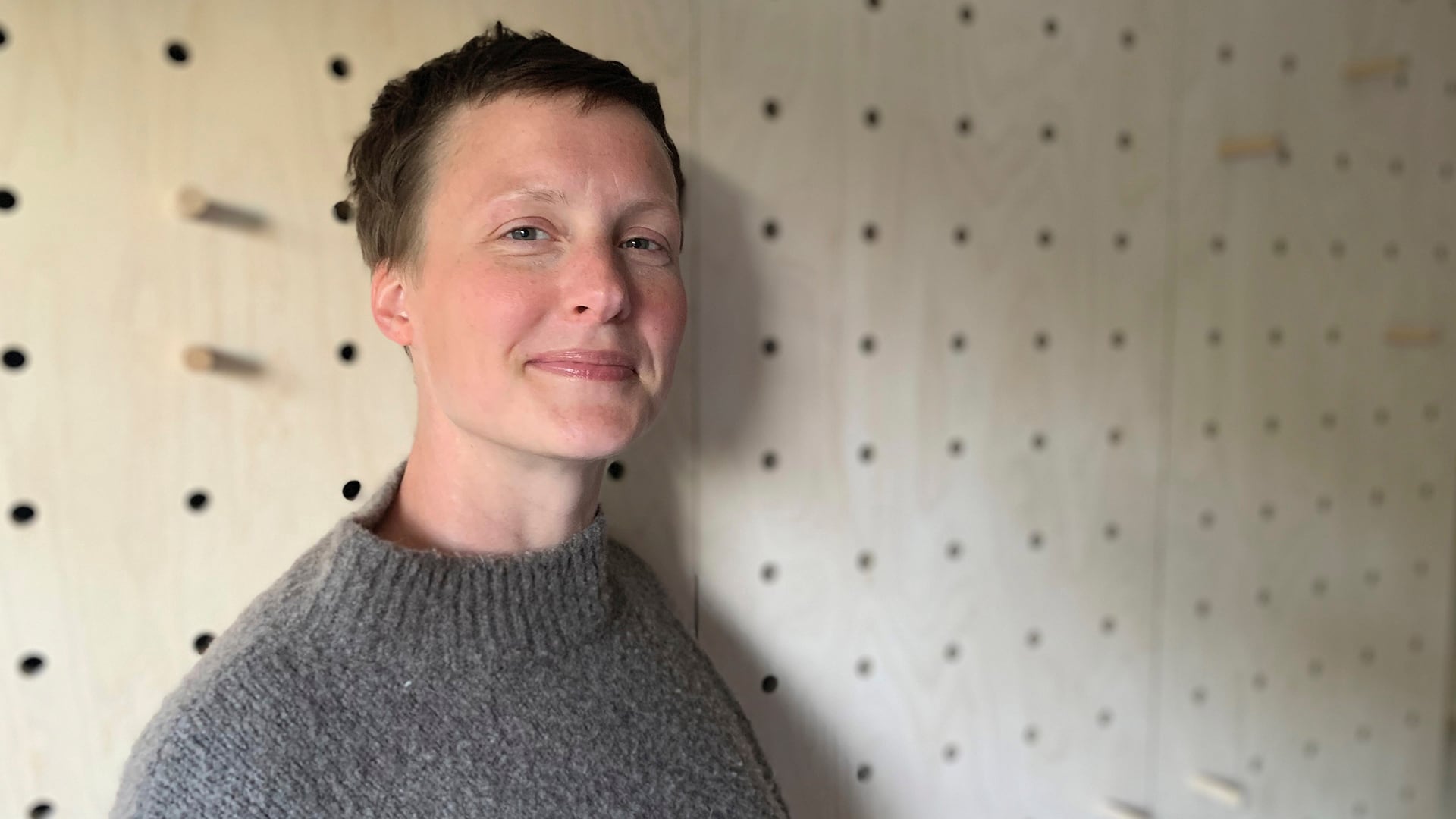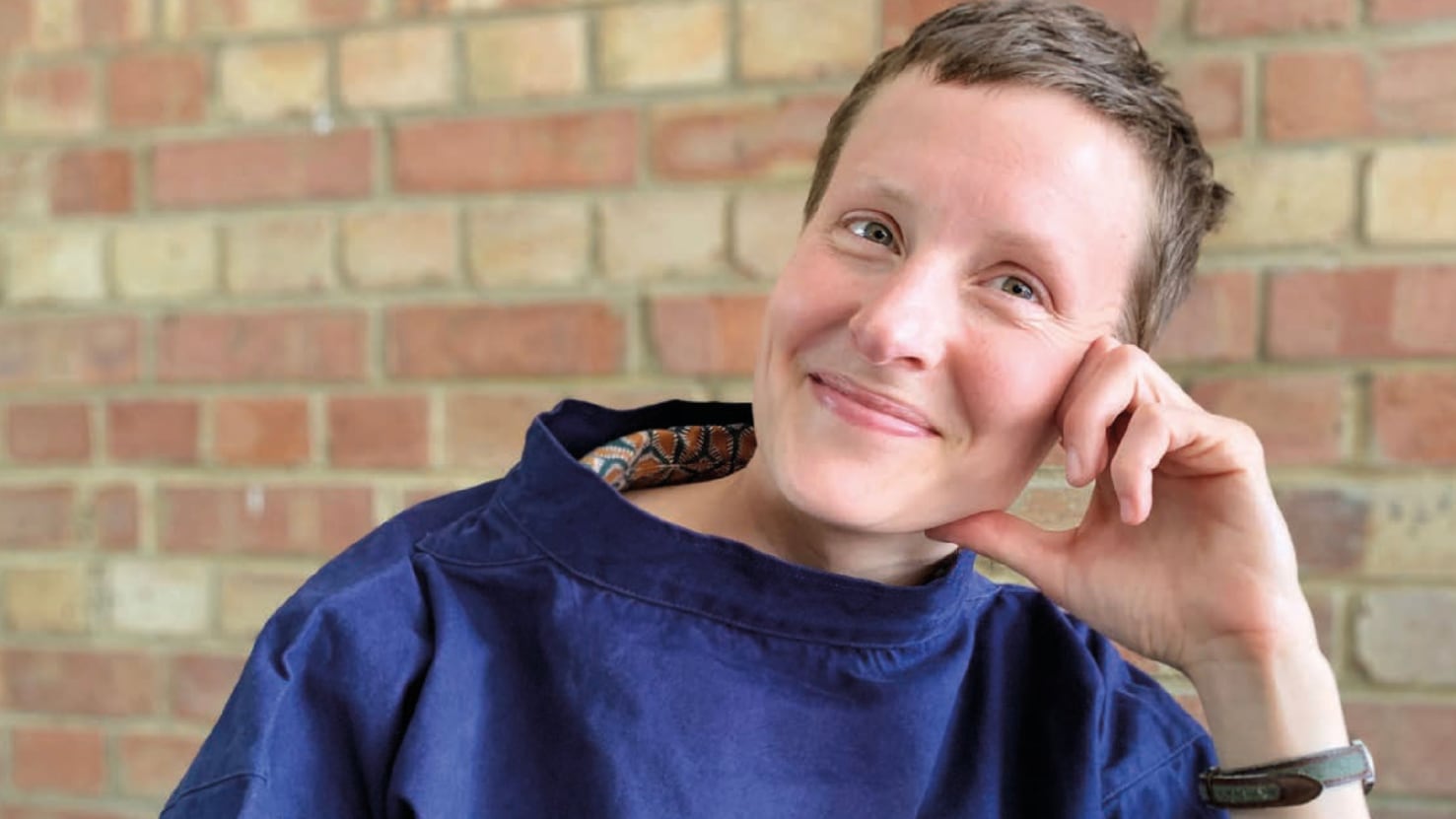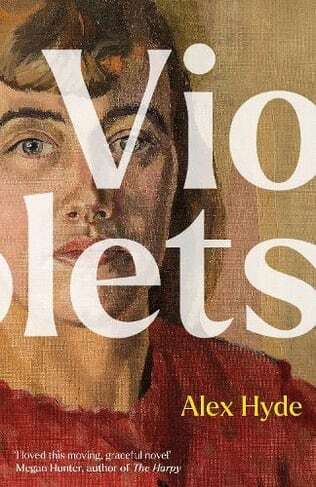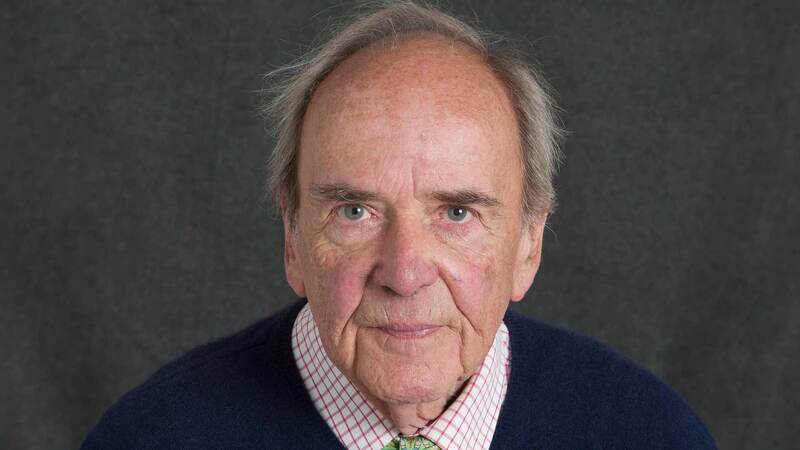You are viewing your 1 free article this month. Login to read more articles.
Alex Hyde on her original début novel Violets
Academic Alex Hyde‘s first novel is a lyrical tale about two women named Violet during the Second World War.
"There was the enamel pail of blood. She couldn’t think what she had done with it. She hated the thought of someone else emptying it.” This striking image begins Alex Hyde’s original début novel Violets, a story of motherhood and loss told in lean, spare prose, and set against the background of the Second World War.
It tells the story of two women, both named Violet. The first Violet wakes in Birmingham Women’s Hospital to the memory of the pail of blood, and the tired face of her serviceman husband Fred (who will soon be deployed to Burma). He tells her that their baby has “gone”. Later, a young doctor abruptly informs her that she has miscarried twins, and that her womb has been removed: “You’ll understand that you will not be able to bear children, Mrs Hall?”
I think those of us who grew up in normative, heterosexual families with a mum and a dad, with everything stable and certain, you can’t imagine what it feels like not to be sure of some foundational aspect of who you are
In the Welsh Valleys, another Violet lives with her widowed mother and works in a munitions factory as part of the war effort. She has realised she must be pregnant, and that the father is a Polish soldier, a former lodger in her mother’s house. He has since been billeted to Aberdeen and replies to her letter with sympathy—but enclosing a packet of pills to end the pregnancy. This Violet has another plan. She takes the train to Cardiff to join the Auxiliary Territorial Service (ATS), passes the perfunctory medical exam by being economical with the truth, and becomes Private Davies.
There is a troopship to Naples leaving almost immediately, and she seizes her chance to avoid the stigma of being pregnant and unmarried in Wales and give birth in Italy. The stories of the two Violets, told in alternate chapters, are joined by a third, poetic, all-knowing voice, who speaks directly to the unborn baby.
Violets is loosely based on the real-life story of Hyde’s own father, who was adopted as a baby during the Second World War. It is definitely a fictional reimagining though, as she explains when we meet at her home in south London on a chilly November morning.
Hyde tells me she grew up in Birmingham hearing stories about her father’s birth and adoption, “stories you are told that are mythologised and elaborated and Chinese-whispered all over the place”. She knew about the Welsh woman who fled to Italy to have him in secret, and that her own paternal grandmother had found this baby via a Catholic adoption agency. And that both these women had shared the same name.
Hyde, who is a lecturer in gender studies at UCL, says she always knew “if I was ever going to write something, I was going to start with this story”. But the “compulsion” to write didn’t come until after her nan (her father’s adoptive mother) died in 2015. Before her nan’s death, the pair had had conversations where Hyde learnt much more about her father’s origins. Hyde’s father knew he was adopted from an early age and had started searching for his birth parents as a teenager. Over the years he had amassed an archive of documents—official letters, dockets, ticket stubs—which his daughter was now able to use for her research.
“My dad didn’t know the things that you take for granted about yourself or your parents and he has had to piece it together. I think those of us who grew up in normative, heterosexual families with a mum and a dad, with everything stable and certain, you can’t imagine what it feels like not to be sure of some foundational aspect of who you are, [even though] he grew up in a loving family.”
Making space
Hyde only started working on what would become Violets in earnest after the birth of her own son in 2016. “There was something about my son being born and thinking of my dad as my grandmother’s son,” she says. Although the story is based in fact, Hyde never for a moment considered writing a non-fiction book. “It never appealed to me to write a non-fiction account. I’ve stressed so many times to my Dad—who hasn’t read it yet!—that it’s made up. That the characters are made up and so much of it is filtered through my own experience and point of view.”
At first, she wasn’t sure exactly what she was writing, mostly on Saturday mornings over years, when her partner took the children swimming and she had some peace and quiet. One of the things I found so remarkable about the novel is the space—both literally on the page, as single lines or short paragraphs are surrounded by leading; “I’ve been a typesetter’s nightmare!” she jokes—but also the space, the airiness within the story itself, for what is essentially a close story of the interior lives of two women. “I think it was to do with the way I poured it out originally, which was scene by scene. I was determined to go into each [scene] as late as I could and come out as soon as I could. I think that comes from my partner, who is a filmmaker,” she says, laughing. “That sensibility of, ‘You don’t need all that extraneous stuff, just get in!’”
When it came to finding an agent, Hyde’s job as a bookseller at Daunt’s in Holland Park in the late 2000s came in handy. Stacking the bookshelves at the very same time was Max Porter, later an editor at Granta and now a successful novelist himself. She had been inspired by her former colleague’s first novel from the beginning: “Grief is the Thing with Feathers, I think that opened up huge, huge possibilities as a book generally. I knew that was a story that was personal to him, and that he’d been working on it since time began—it was almost like, ‘Oh, I’ve got one of them’. That book just cracked open this idea that you could move between registers of poetry, with a plot and sentiment and feeling. There was something really inspiring about that.”
The next steps
When Hyde had a finished manuscript—although she still wasn’t sure exactly what it was: a prose poem? A screenplay?—Porter introduced her to agent Emma Paterson. The agent decided it definitely was a novel, although one with certain challenges, not least the name shared by the central characters. “They had the same name in life, and that was part of the mystique of the story, so I was never going to give my characters different names. But it wasn’t until I sent it to my agent that I realised the challenge of having two characters with the same name!”
Although Hyde says she resisted the idea she was writing a historical novel or a war novel all along, she has written a lyrical and moving account of the experience of two ordinary women in wartime, of their domestic lives and their physical bodies. The Second World War is the backdrop to many works of fiction still, but Violets explores new ground.
“The idea that the war could have been liberatory for women in terms of the roles that they were exposed to. To think that my dad’s [birth] mother had barely been anywhere and she got herself a posting to Italy, it just must have blown her mind to be pregnant and in Italy at the same time. She’d literally never seen the Mediterranean Sea and suddenly, there it is.”
Book Extract
On land, back home, Violet would have been watching for spring. The valleys would be shaggy and soaked, like a drenched fur coat. But there would be primroses at the roadside by now, new lambs.
The sea stretched out before her as if there was nothing beyond, as if it would always be there.
She wished she could stay like that, with everything else washed out. She had tried to plan, to think ahead, to guess how much time she had left. Another month? Six weeks? Before she really began to show. Before there were rumours, or it was obvious. Before she declared herself and was sent home.
Would she be sent home?
Violet looked at her watch. It was nearly eight o’clock. Time for breakfast then roll call, inspection then drill. She rolled down her sleeves, put her tunic back on.
She took a deep breath, shaded her eyes from the sun.
And there it was. Land. Italy. Violet felt her stomach flutter. Hunger? No, that wasn’t it.
She paused. A kick.
There was a ripple, then gone. Now again, beneath her ribs.
A flip, a tail fin’s dip.
Like something slipping out of her grip.












